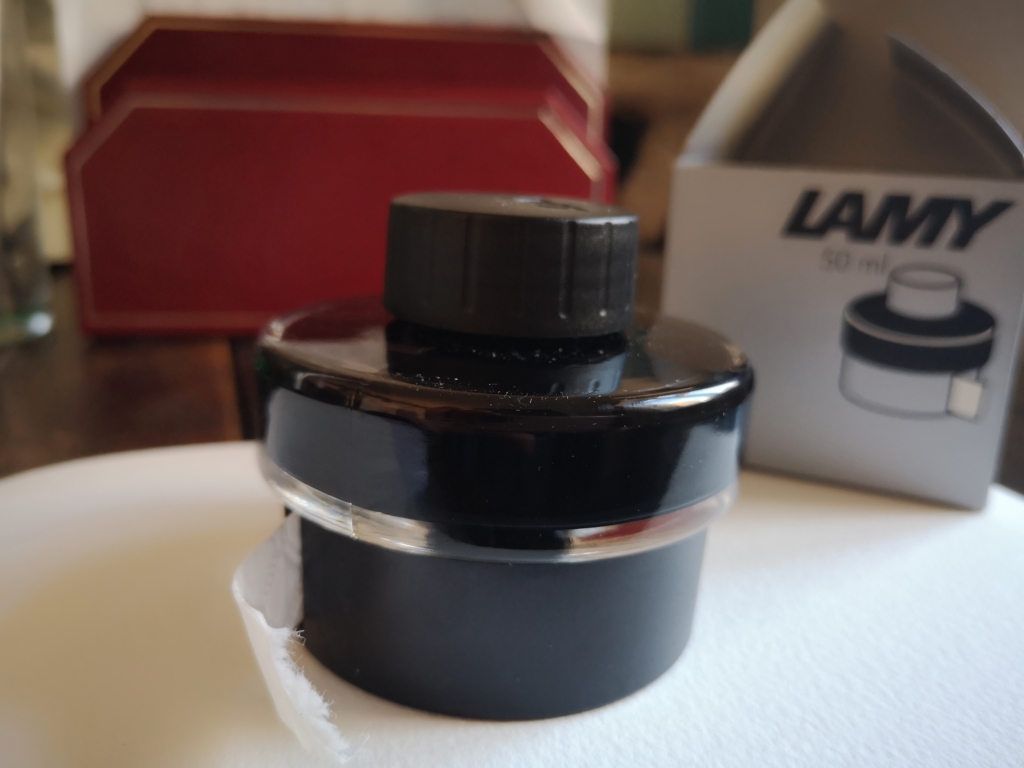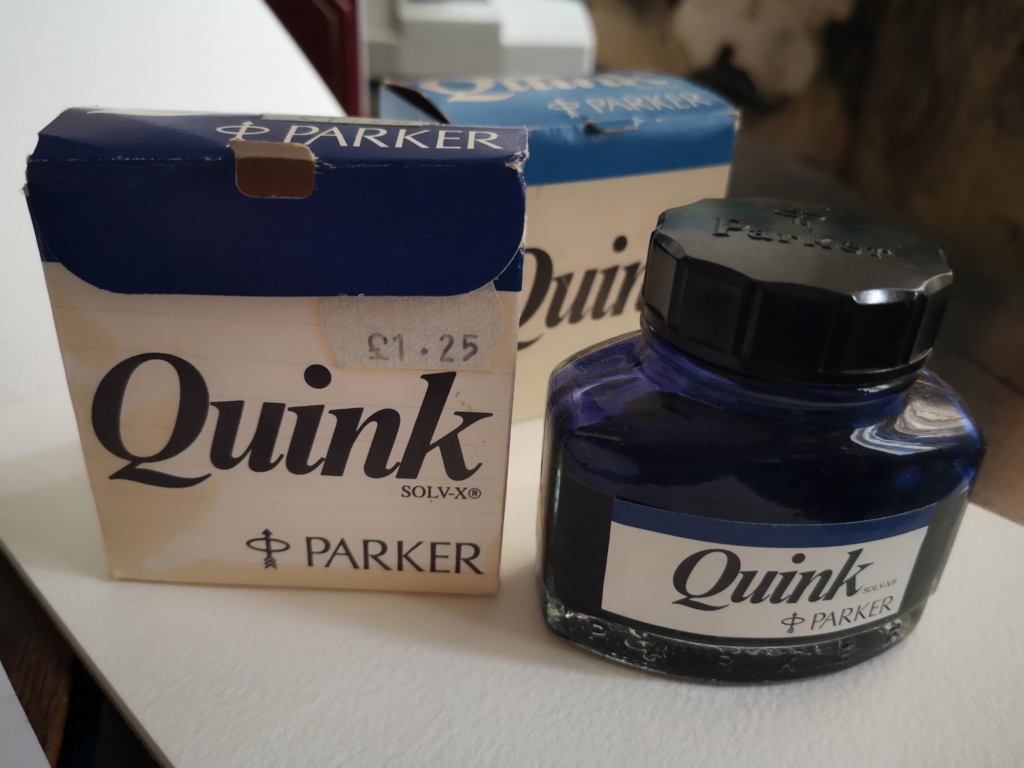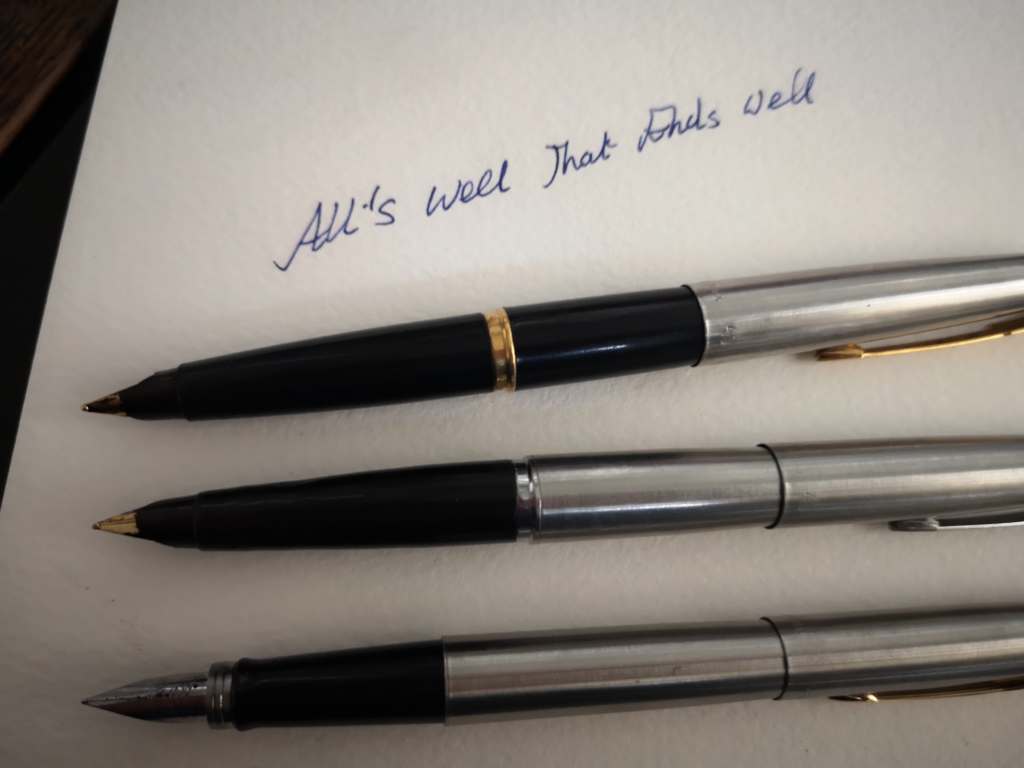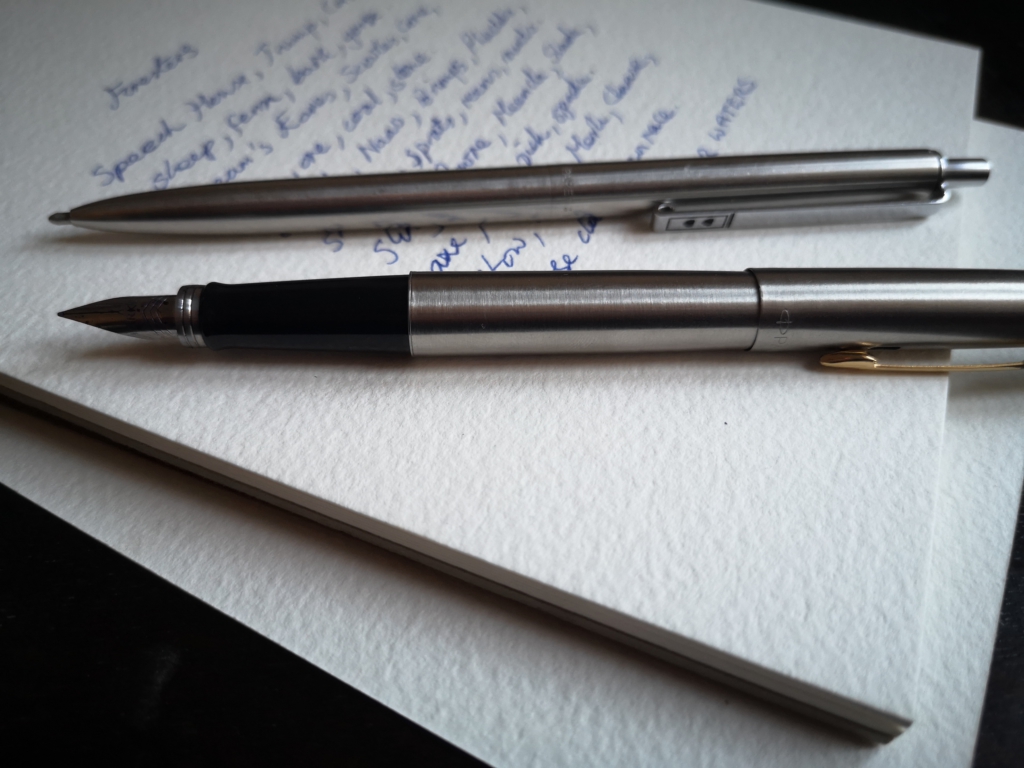Yet another plastic biro ran out of ink the other day, and so it joined the inestimable number that must be languishing in landfill worldwide. As I threw it in the bin I made a vow to revisit my idea of going zero waste and plastic free with my pens. I used to use a fountain pen, long after school days. At the time, it seemed like I sported an old-fashioned quirk, but, now the fountain pen is making a come-back.
As it’s Zero Waste Week this week, my thoughts have turned to more everyday household challenges. I’ve been carrying around a refillable retractable rollerball pen in my bag for a while – all aluminium outer too. But, where were my two old fountain pens? I searched high and low – rummaging in pencil cases full of old, faulty plastic pens and chewed pencils, and even up in the loft in boxes of ‘small stuff’. All to no avail. So, whilst in town, I veered off into a stationery shop, bit the bullet and bought a basic Parker pen, just like my old ones.
Plastic Free Writing Challenges
Happy me. Only, inevitably it came in card and plastic packaging – but am I asking too much? After all, once I’ve discarded that, all I need is an ink bottle. I suppose, if I’d bought a more expensive pen, it would have come in a card-only box, but I bought this on the fly: on a whim really, as it was on my mind.
Ink Bottles
I couldn’t find my old ink bottles either, so my next purchase was a bottle of ink. My choices – a bottle of Parker Quink ink in a plastic holder, or a bottle of Lamy ink in a card box. Though I used to use Quink ink, I thought I’d give the Lamy a go. Back home, I opened up the box, only to find it comes sporting a plastic blotting paper strip dispenser.

Whilst avoiding inky fingers is very handy, it defied my plastic free motives. After some research, though, I found that I can buy bottles of Parker Quink online, still in the card packaging of old; and Lamy do sell ink bottles without the plastic dispenser (and in pretty colours too). The moral of the story is, of course, do your research. But, possibly also that plastic-free is hard to find in high street stores at the moment.
Nevertheless, many people are showing fountain pen love on Instagram, and elsewhere, so it may be that fountain pens are joining the Unpackaged Revolution that we’re seeing surrounding food. Ink bottles are the equivalent of buying writing supplies from bulk bin food stores, and a desire for a little analogue in our increasingly digital lives!
Rollerball Refills
I still have to buy more refills for my retractable rollerball pen. I know they’re not quite as sustainable, as you still have to throw away the refill, and the resources embedded in them, but you can choose nearly 100% aluminium. Then, aluminium, a natural metal, is returned to the earth from where it came. I can’t say anything about the effect of the ink residue in the refill though – that’s beyond my knowledge.
It would be no surprise to report that the refills for my Papermate pen, like most, come with a small plastic window – but small wins eh!
My Old Pens Turn Up
Now, I have to admit, I didn’t do this too well because after I’d bought the new pen, I had a flash of inspiration about the whereabouts of my old pens. I’m working at home for my 9 – 5 work as our offices aren’t open for regular work. I’m fairly sure that I abandoned using ink pens long before we moved to these offices, but as I popped in there to pick something up, I thought I’d check my desk drawer. Yes, right at the back, tangled up in some string, there they were. Zero waste fail…
Or, maybe not. I now have three fountain pens, but I could always indulge in keeping them filled with alternative hues of ink (I have crafting endeavours in mind).
I also found two old ink bottles when I visited my father – I knew I’d find them eventually. They must be years old, as they have £1.25 price tags, but they’re fine.

It feels like I should say, if being zero waste is your motive, that you should search out what you have before buying new. And, if you have a house full of biros, you might as well use them up. Life isn’t necessarily so logical and linear though. After all, it’s likely that reverting to refillable pens (particularly ‘old-fashioned’ fountain pens) will have the beneficial effect of making you appreciate the pen as something valuable. I can almost guarantee that ‘refillable’ as a mindset will be reinforced.
Those disposable biros, possibly littering the house, will get used up anyway. Either you’ll use them, or someone else will. Then that’s the end of them, and you can move on to a new chapter.

Ultra-eco Pens and Refills
You can buy nearly 100% metal fountain pens and rollerballs (just a few small plastic bits), then they should be fully recyleable. My hope is that refills will be recycled again: I gather Terracycle used to recycle them, but has since stopped. In the meantime, though, I’ve found some good news. Refills can be bought in bulk at a similar price to boxes of biros, so refills don’t have to be expensive.
As a result of my move towards these small items (refillable pens), I’ve started off a bigger move. I spoke to an eco-minded person at work to suggest we could move away from boxes of disposable biros. We just need to offer reasonably-priced alternatives, and order refills in bulk – I got the nod of approval. Even our field staff, who work outside, often in muddy conditions, might be persuaded. I’ve found that retractable rollerballs, that get given out at conferences and events, are in fact refillable. This type of promotional pen, is refillable with this type of refill. See Jet Pens for a handy guide to refill types. There’s no harm in testing free pens, particularly out in the field, to destruction (or potentially long life).
I have also found an Ecolif3 Eco Cork pen, for which you can buy aluminium refills in a card box (hurrah)! They’ve sold out on Amazon, but are available elsewhere at the time of writing, so maybe that’s telling us something? Is the writing on the wall for disposable plastic biros?

